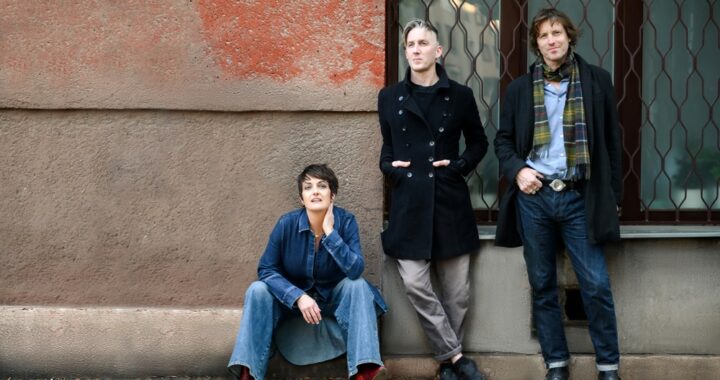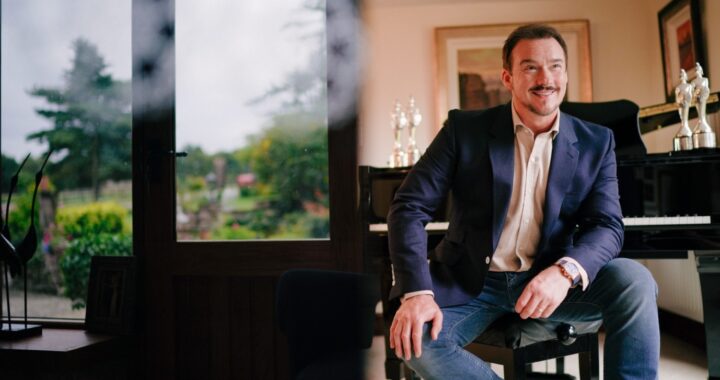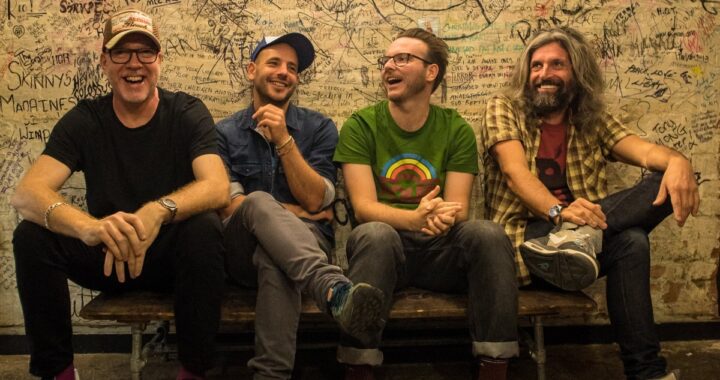Interview: Oh Mercy
4 min read
More than anything else, Alexander Gow comes across as strikingly sincere. There is no pretension to the man, or his music: under the name Oh Mercy he has been releasing breathtakingly honest albums since 2009, and though When We Talk About Love, his most recent record, is his most dense and string-heavy, it’s as humble and grounded as anything else he has ever done.
Indeed, though his sound has evolved from album to album (very consciously: Gow discussed with us his desire to make each work different from the last), all of the records are united by the singular force of his vision. For example, 2012’s Deep Heat might have been dominated by funky throbs and 80’s glazed beats, but lyrically it saw Gow wrestle with a sub-current of melancholy and quiet, devastating aimlessness; territory he mines even further on When We Talk About Love across tracks like Let Me Be Him and the brilliant Cool Water.
We spoke to Gow ahead of his Sydney show at the Oxford Art Factory about touring, Raymond Carver, and the importance of staying hydrated.
Joseph Earp: When We Talk About Love takes its title from a Raymond Carver story. How did Carver’s work impact the album as a whole? Were there any other literary works that inspired the record?
Alexander Gow: Well, his writing kept me company while I was traveling through the States. And importantly, a woman I loved a great deal introduced me to his short stories. We would often discuss his writing over a long distance. I was enjoying Roberto Bolano while writing this album too.
JE: The album has such a layered, dense sound. Did you have that in mind for the work from the beginning, or did it evolve that way over time?
AG: Yeah, I wanted to make a lush, beautiful sounding record from start. I wanted to make sure it was employed a different sonic landscape to Deep Heat, my previous album. The words I was writing were sentimental and lovelorn, I thought it the appropriate marriage. The music is dense, but generally, the arrangements are very simple. Several of the tracks only have 3 or 4 chords.
[youtube id=”AKE44SmUCUs” width=”650″ height=”360″]
JE: It really feels like there’s a narrative running throughout When We Talk About Love. Was that something you always had in mind?
AG: Well, simply, I wrote this album separated from a loved one. It was tough. And I wrote about that. I wrote some songs about other subjects but they weren’t as strong. Deep Heat‘s words were quirky, third person tales, I wanted to be sure the lyrical themes on this album were different from that idea.
JE: How autobiographical is a song like Sandy? I’m struck by how incredibly powerful the ‘I’d rather be dead than to be alone again’ line is.
AG: Well, all the words on this album are ‘autobiographical’. Some straight up and down, others ironic, self deprecating and tongue in cheek. But yes, I ‘mean’ everything. Having said that, I’m on my own now and I’m alive enough to answer these questions, so I guess I didn’t really mean it at all.
JE: Your work reminds me of John Peel’s quote about The Fall: it’s always different, but it’s always the same. Do you consciously try to alter the sound between albums? And how would you describe the essential ‘Oh Mercy sound’, if you were pushed to?
AG: I do…consciously try to alter the sound between albums. I guess the several ingredients that tie all the records together might be – my vocal delivery (my voice sounds different album to album, but the phrasing and delivery is similar), the song structure and the use of major and minor seventh chords.
[youtube id=”Y623F7C4xo0″ width=”650″ height=”360″]
JE: When you’re writing, do you find the lyrics come first or the melodies?
AG: I usually write the lyrics first. Especially on the When We Talk About Love album.
JE: Will you sit down a certain number of hours a week to write, or do you have less of a rigid structure?
AG: I have no structure. I haven’t written a song in a while. It’s terrifying. I need to have time. Mostly its time. I also have to feel healthy. Exercising heaps. And drinking tonnes of coffee. Sun light helps too. Sometimes when I’m stuck for ideas I’ll learn other peoples songs. That usually encourages something new of my own.
JE: You’re currently on tour and your Melbourne date was a sold out show. How has the tour been going so far?
AG: Great thanks. Melbourne was the first show. It was fun. The new band are sounding great. There’s six of us on stage. We make a hell of a beautiful sound.
[youtube id=”hCObGEC2hMk” width=”650″ height=”360″]
JE: How do you feel about performing live these days? Do you still get nervous before a show?
AG: Yes, I get very nervous. It’s a bizarre thing to do, playing a gig. I’m not a natural performer. But I do love it.
JE: Did you ever have a eureka moment when you decided music was what you wanted to do with the rest of your life?
AG: Not really. For one reason or another I have always wanted to play music. And to be good at it. I’ve always wanted to be a signer songwriter.
JE: If you couldn’t make music, what would your dream career be?
AG: I’d like to run a nursery. A plant one that is. A successful one that is.
JE: Tell me something you’ve never told an interviewer before.
AG: I think I could drink more water, day to day.
Tickets for Oh Mercy’s show at the Oxford Art Factory are still available. You can buy them here.



